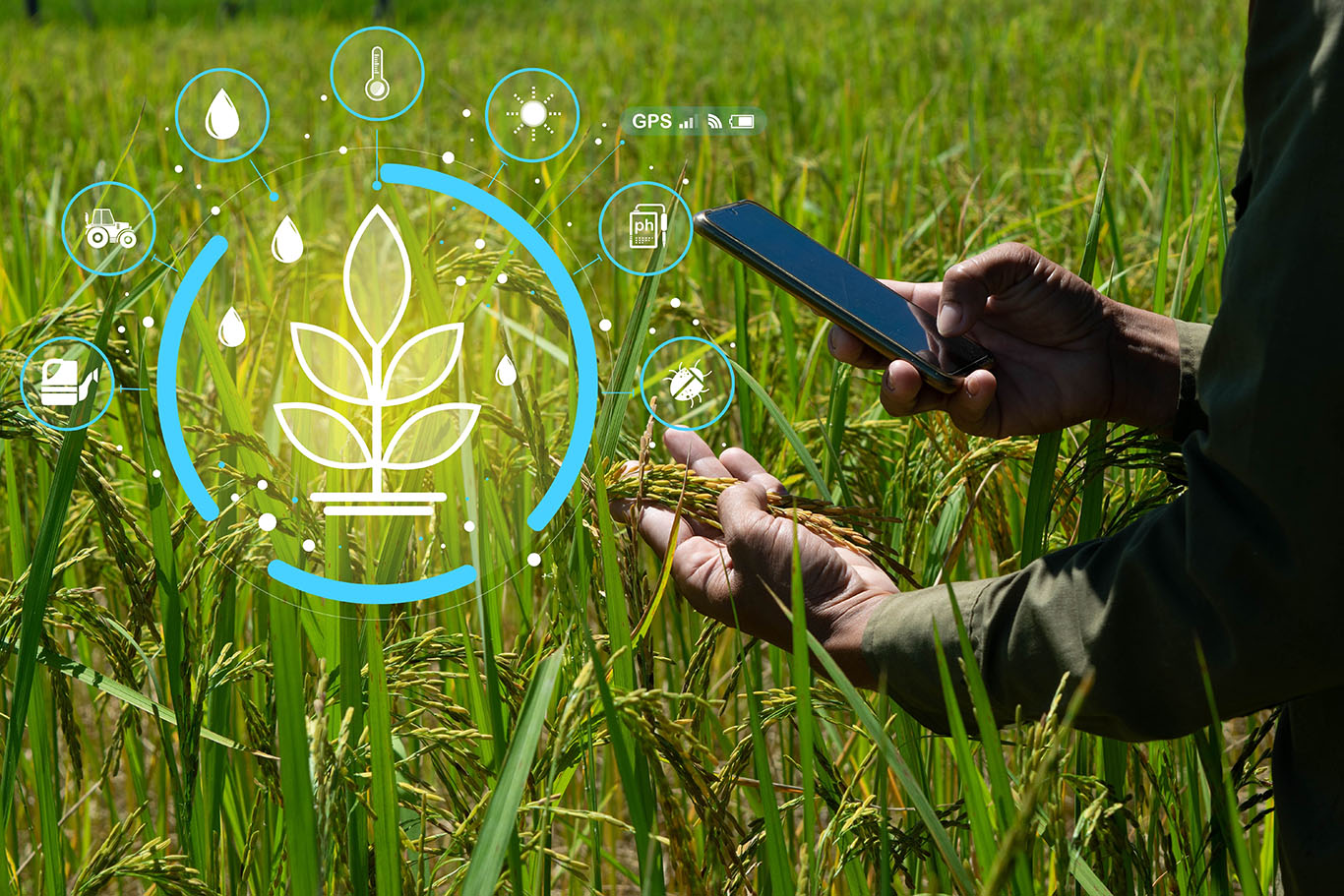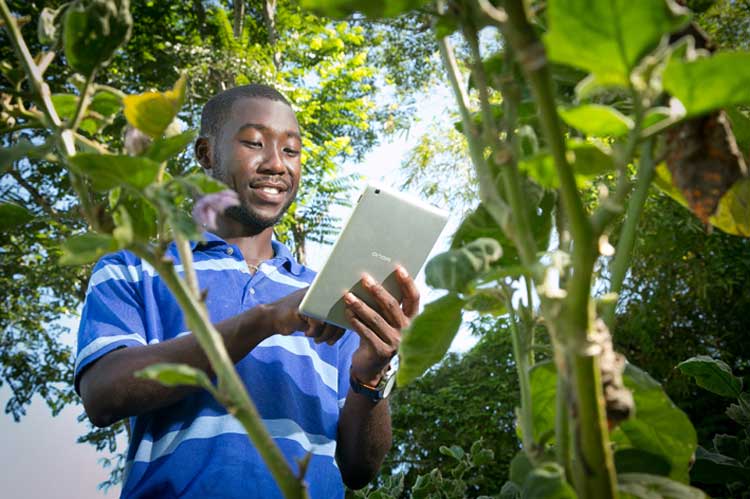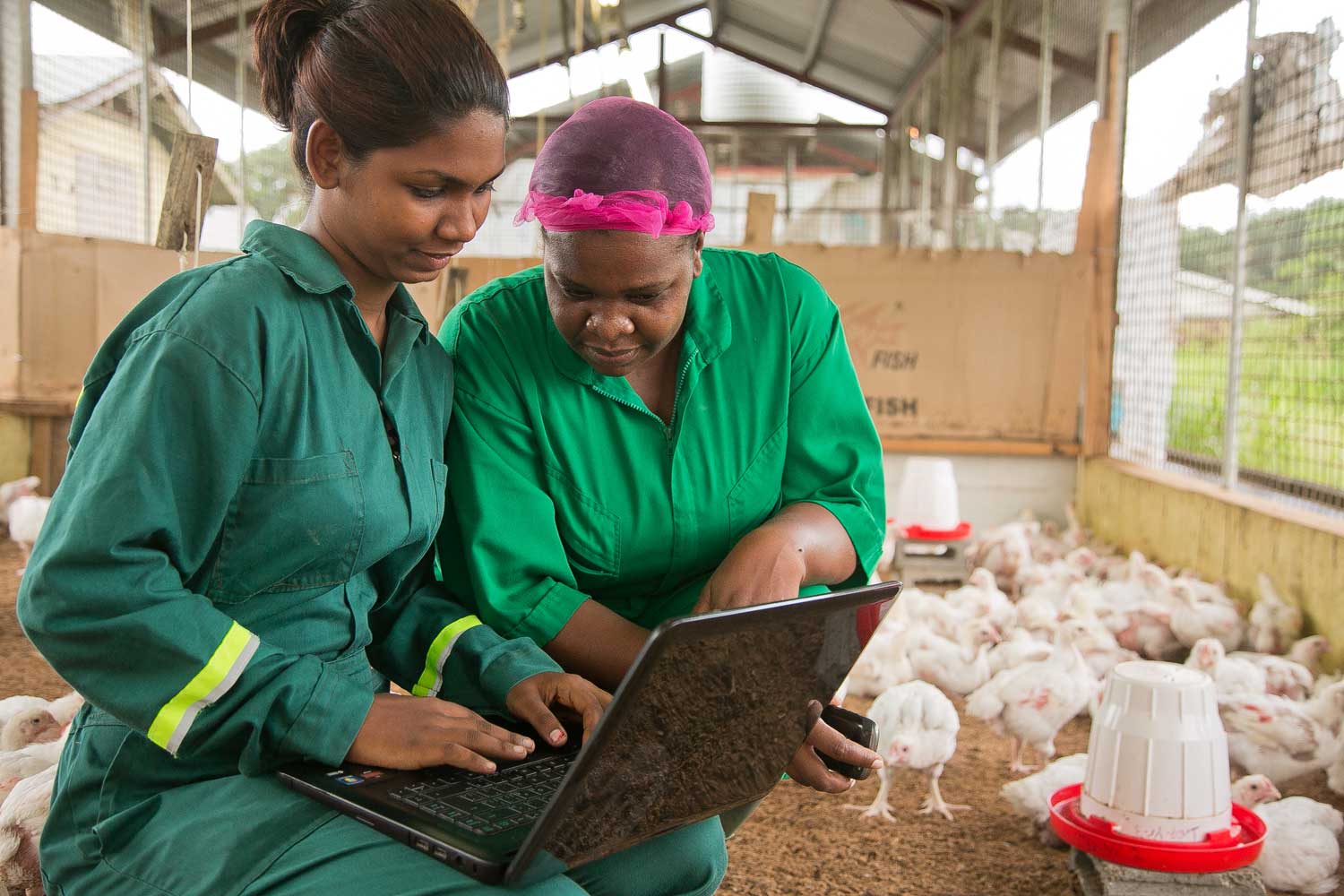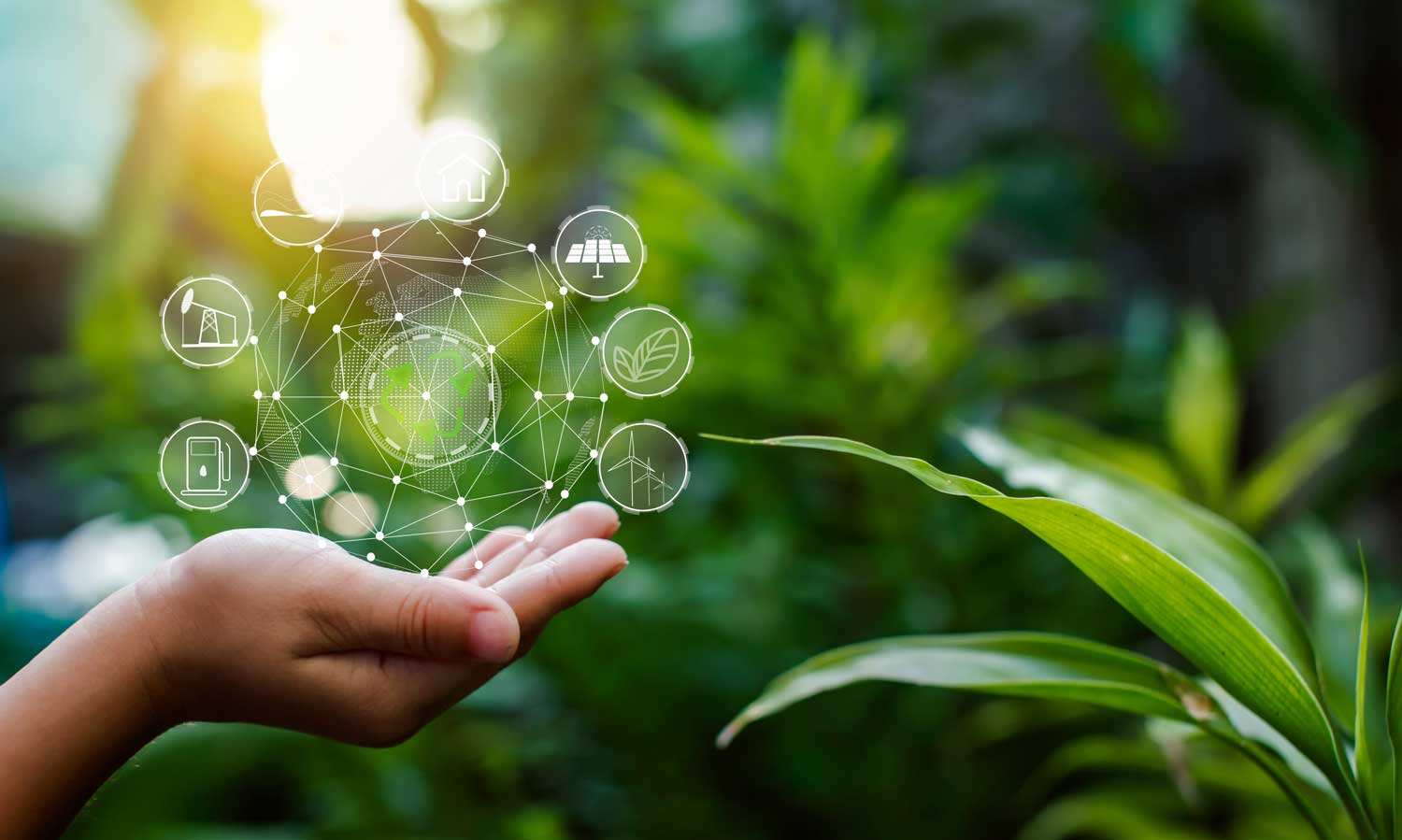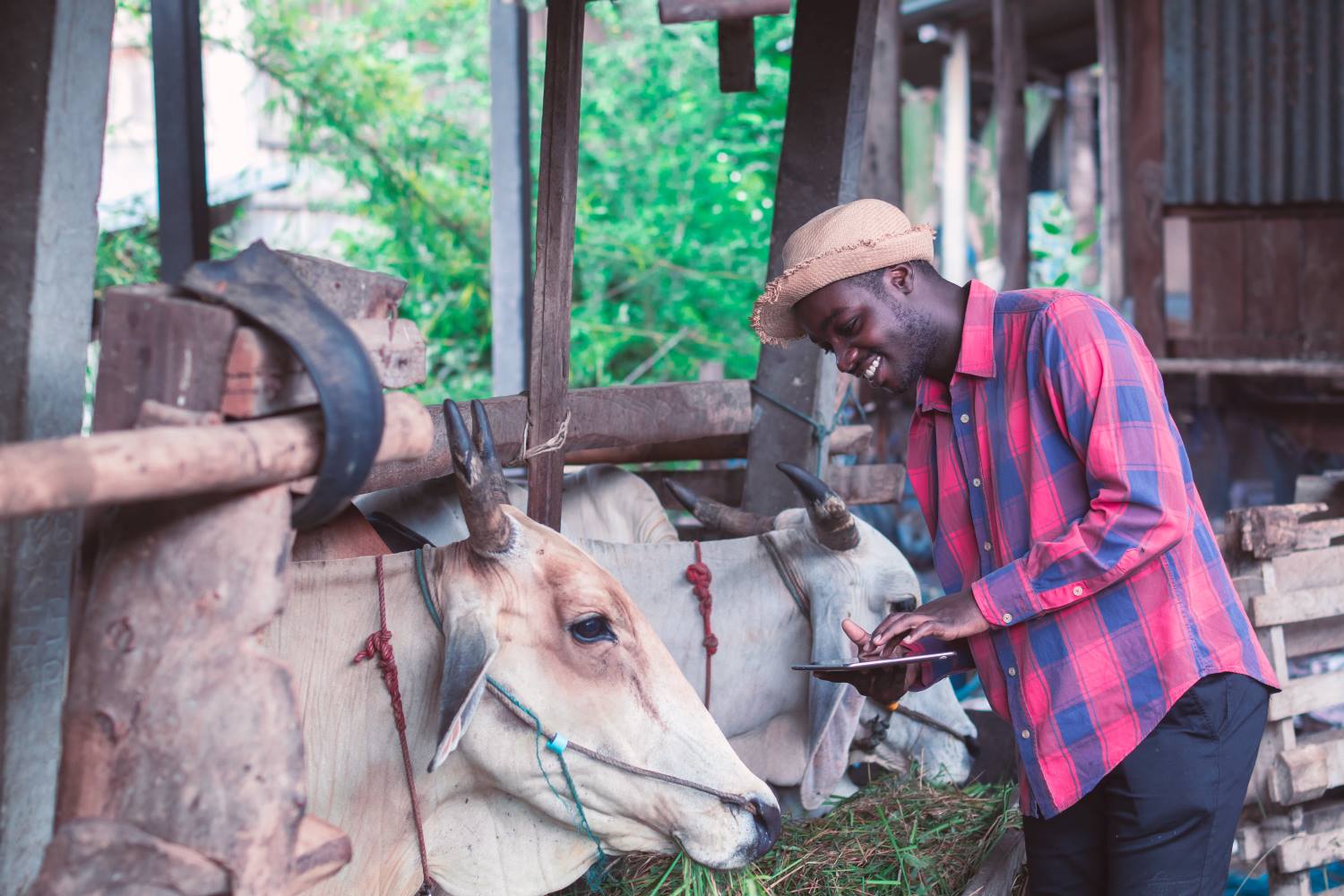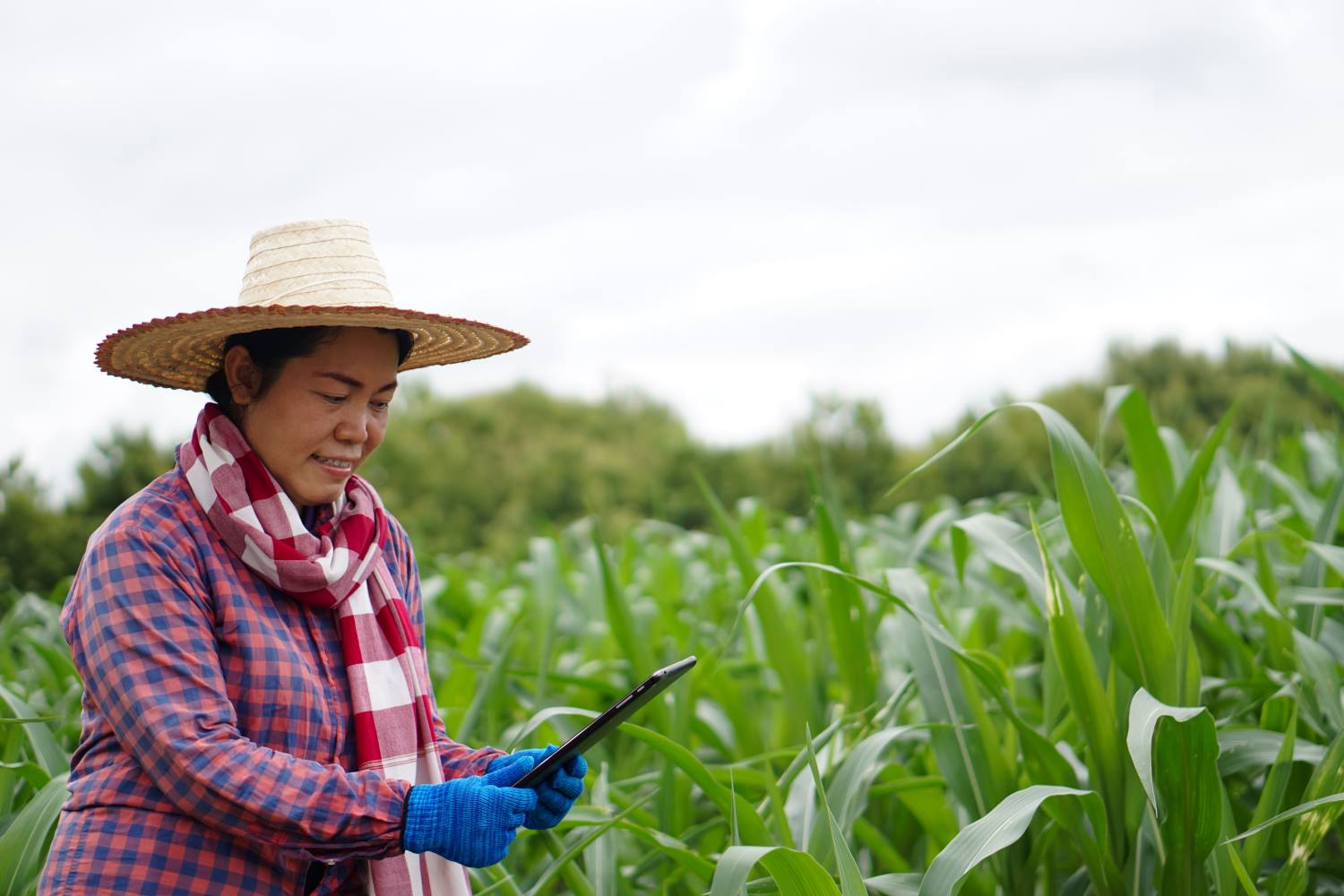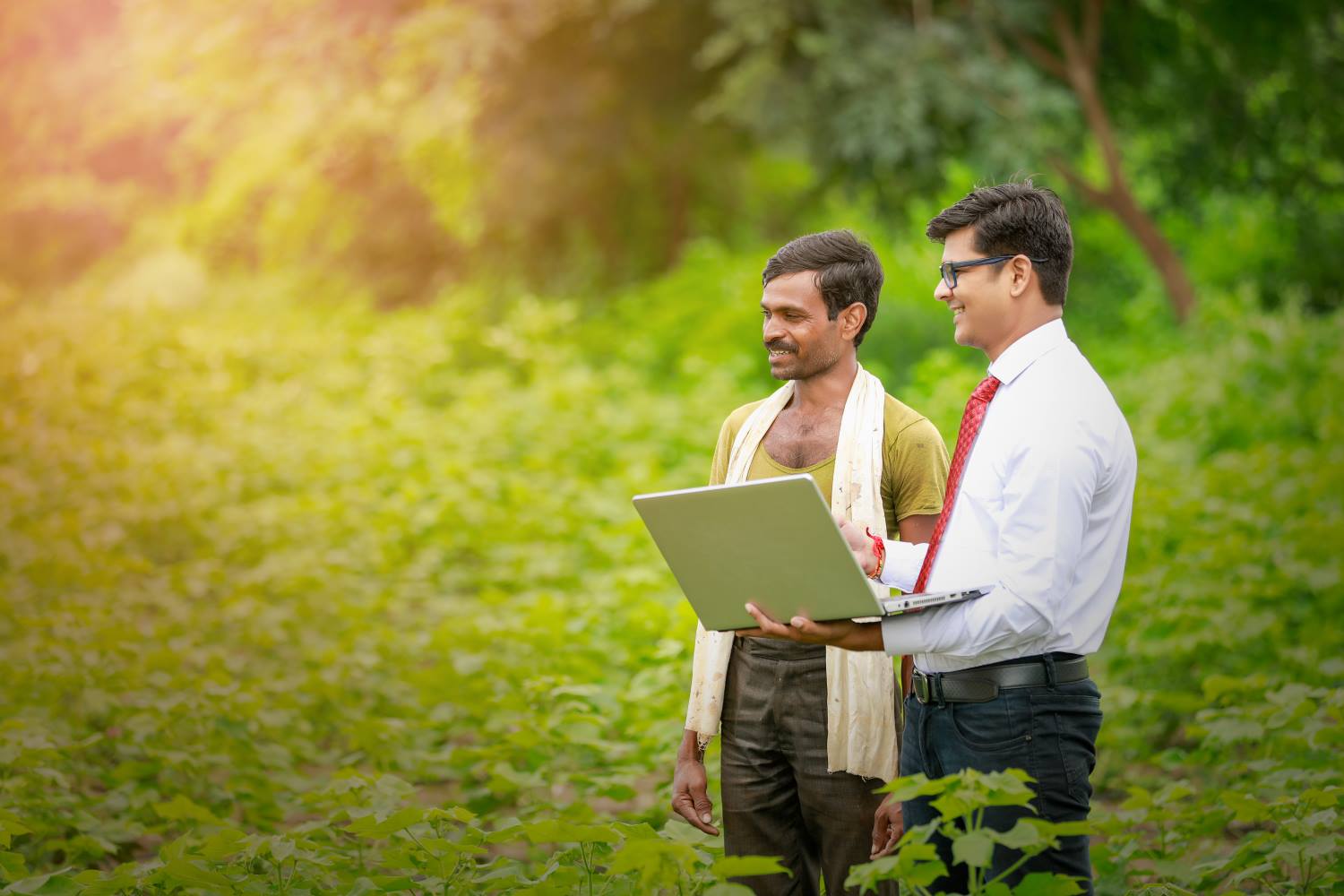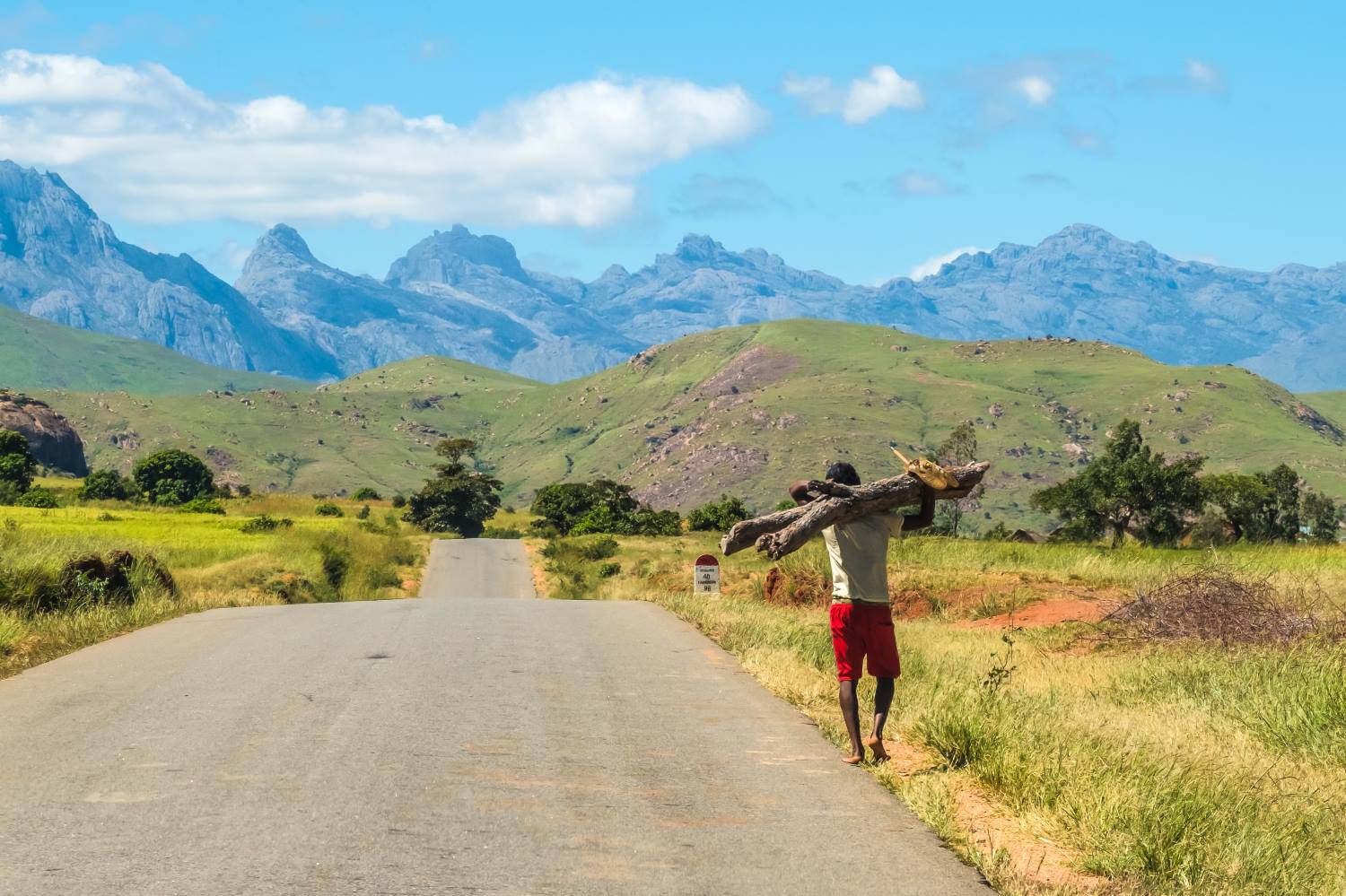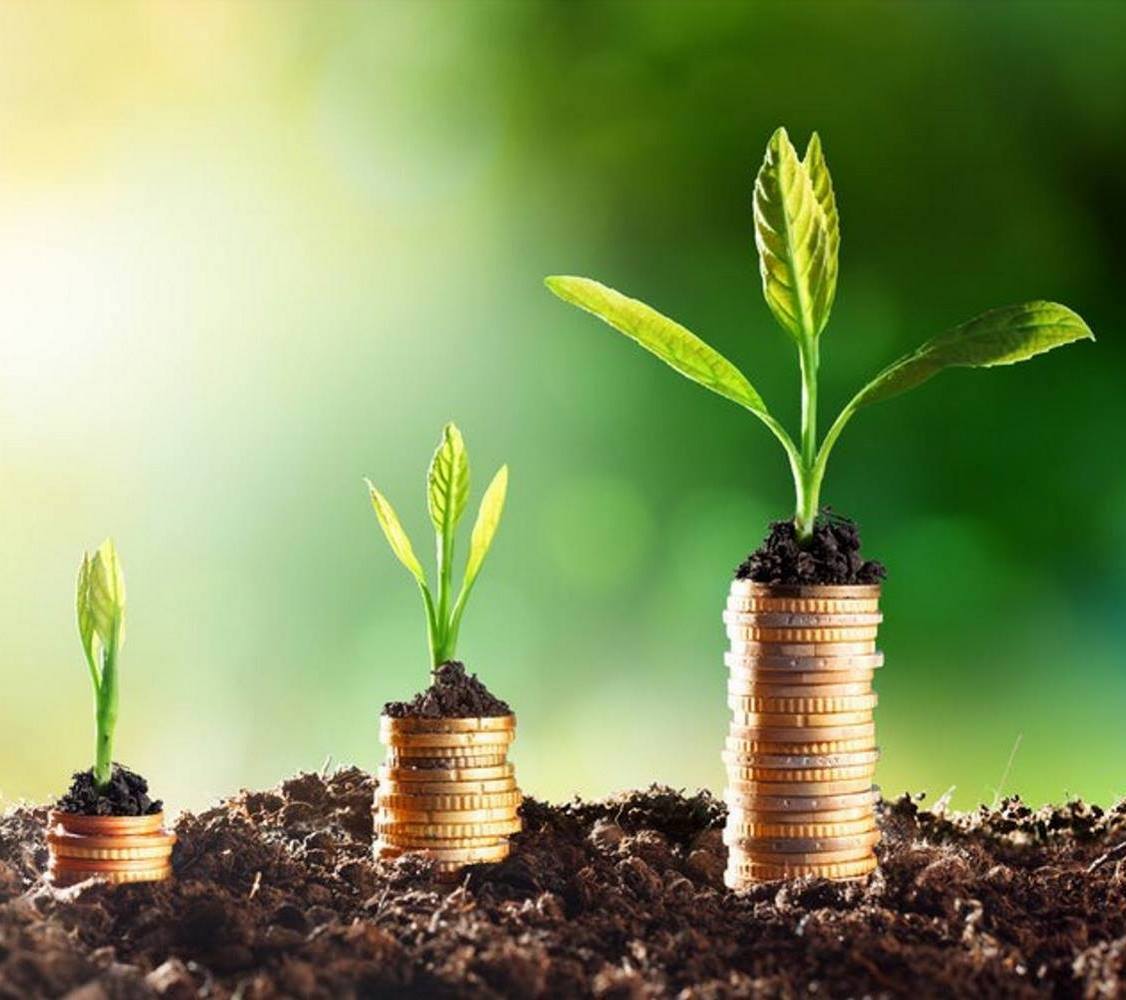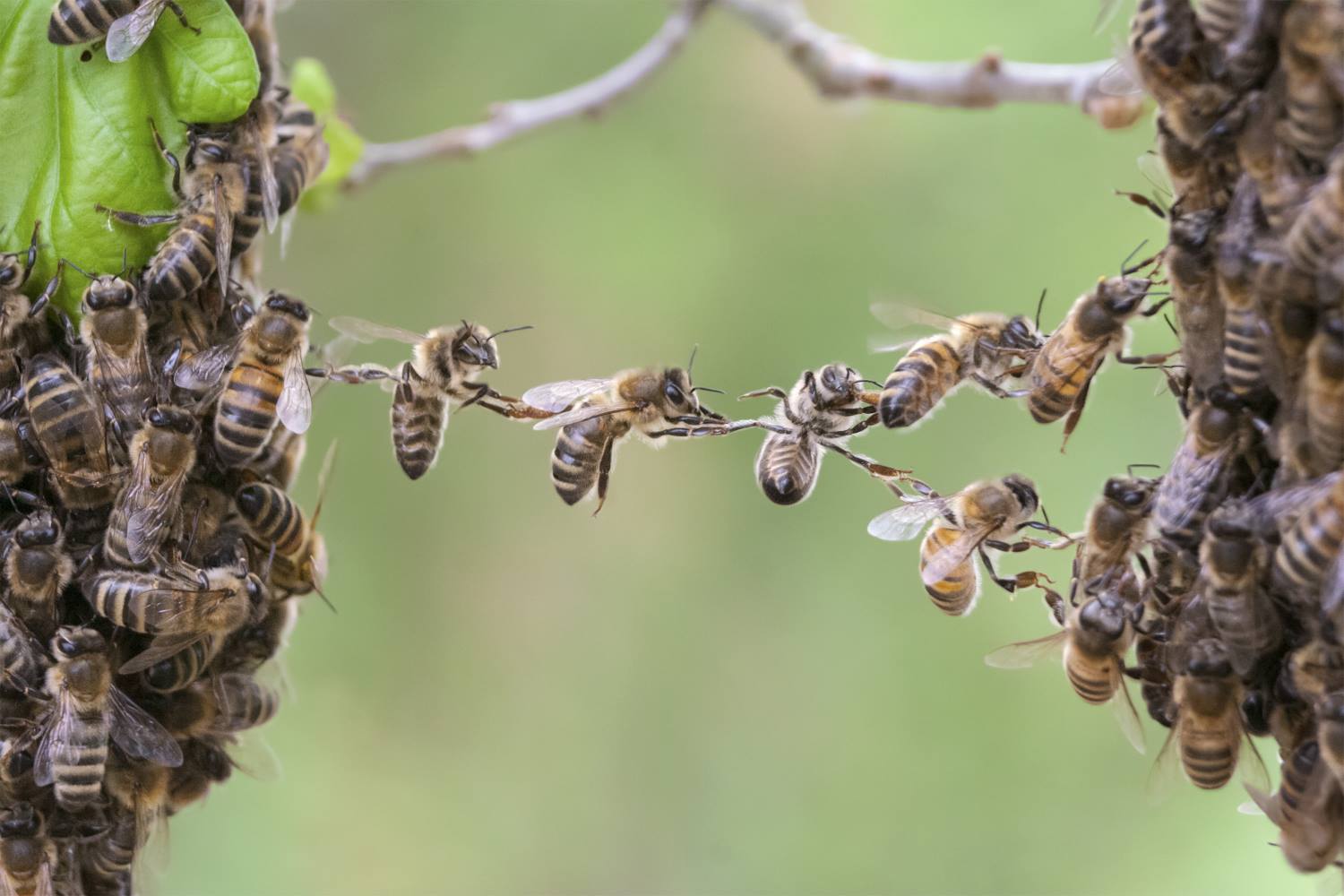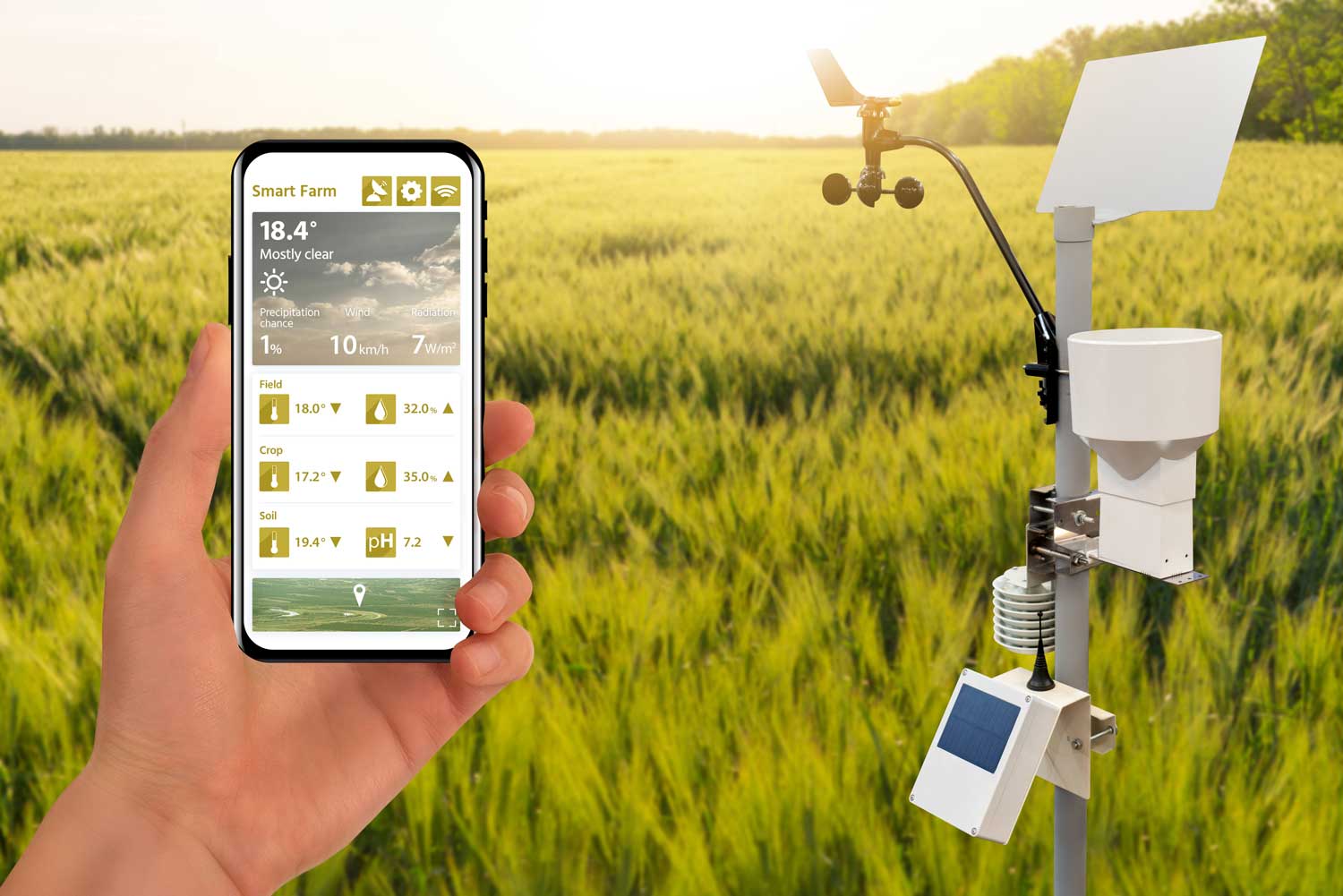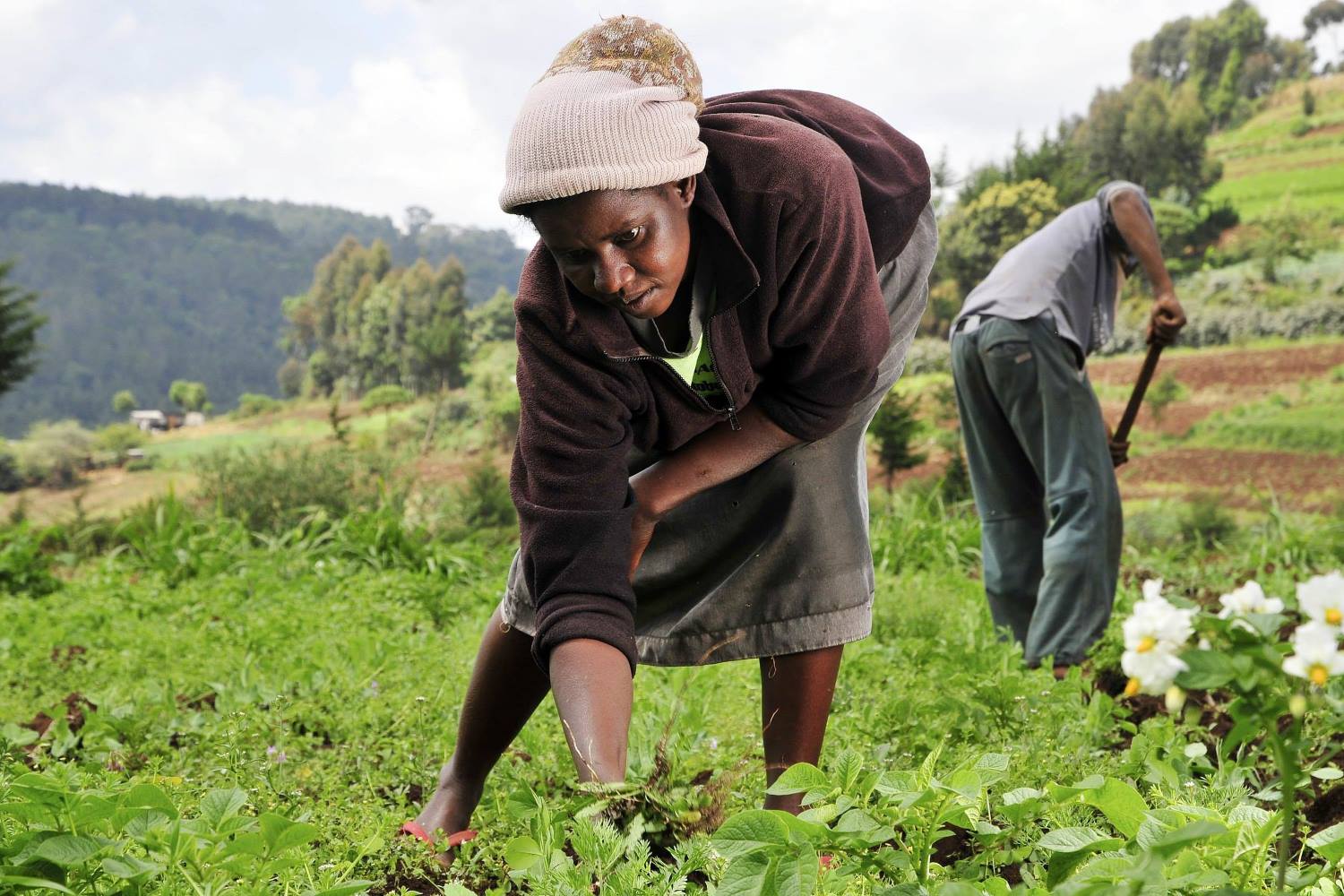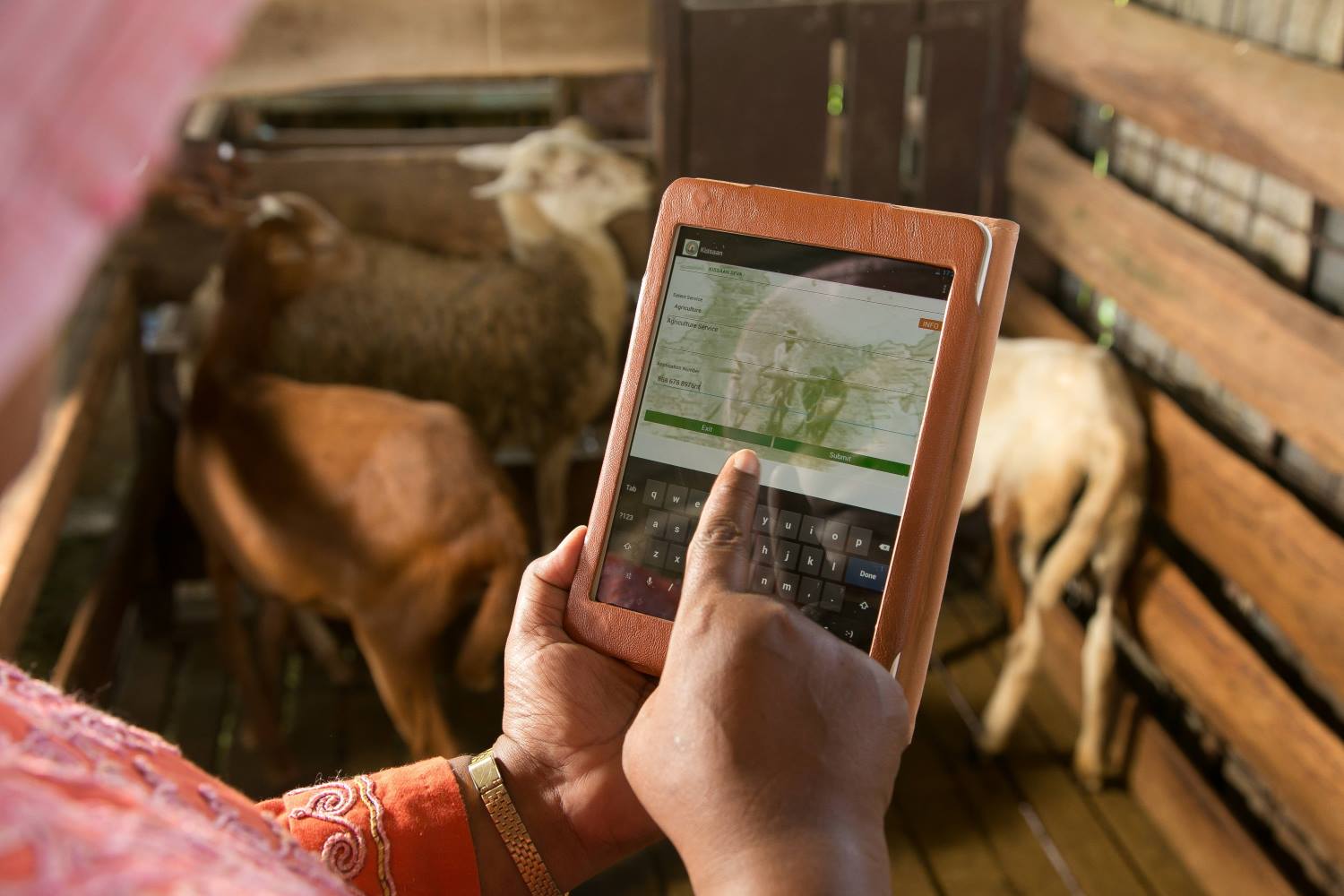Unlocking the Potential of Digital Agriculture in the NENA region: Leveraging Digital Agri Hub’s D4Ag data and insights
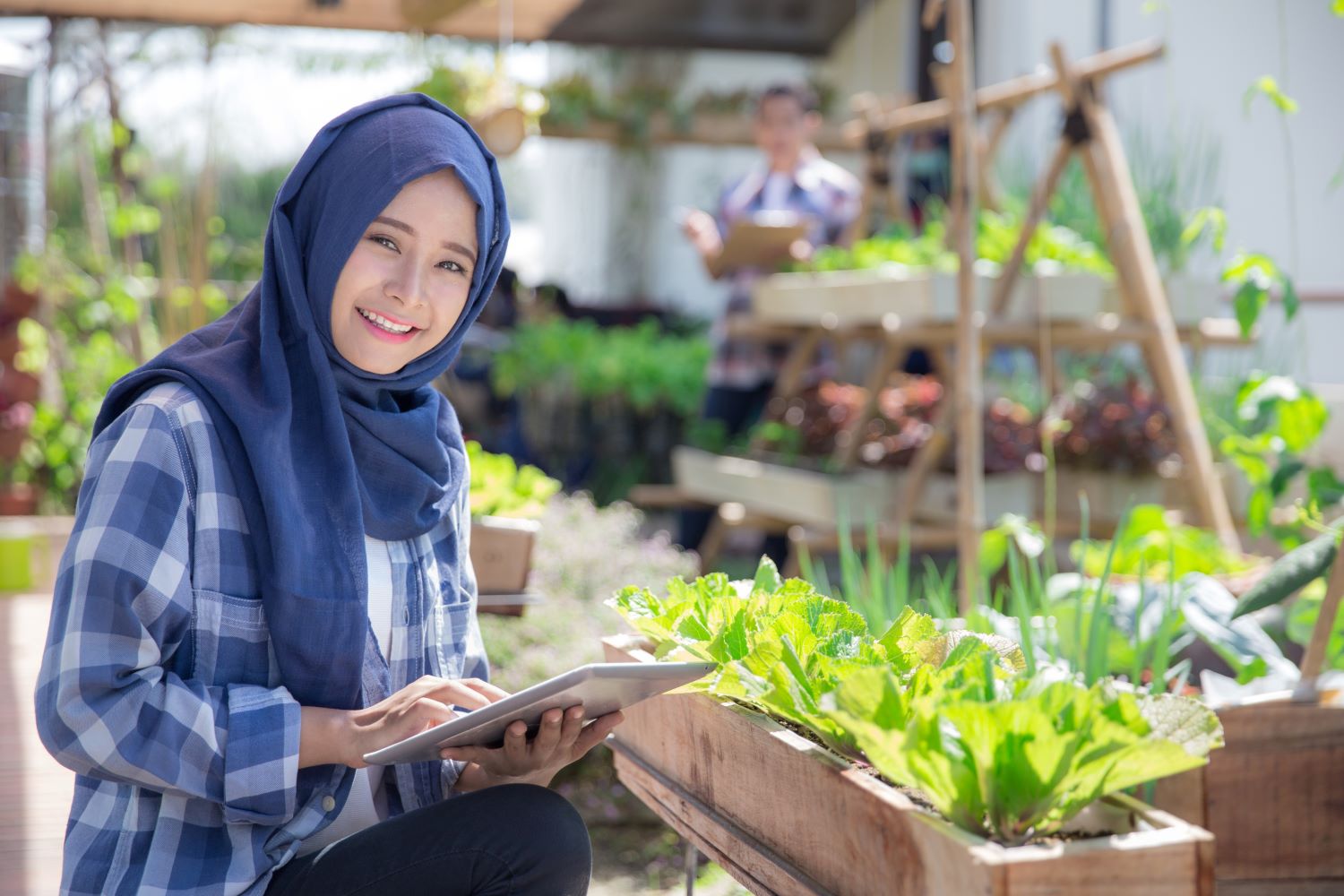
Unlocking the Potential of Digital Agriculture in the NENA region: Leveraging Digital Agri Hub’s D4Ag data and insights
AUTHOR: INDER KUMAR, WAGENINGEN UNIVERSITY & RESEARCH
PUBLISH DATE: 14 SEPTEMBER 2023
At the core of agricultural transformation in the Near East and North Africa (NENA) region, the digitalisation for agriculture (D4Ag) plays an important role in its operations. Agriculture in the NENA countries is struggling with limited agricultural land and dwindling water resources, confronting the urgent demand for adaptation and efficient use of its resources in the face of climate change. The United Nations emphasize the immediate need to utilize digitalization as a pathway to address precision agriculture, efficient use of scarce land resources, market opportunities and the impacts of climate change. There is a significant knowledge and information gap in the agricultural value chains in the NENA region due to a lack of timely and comprehensive data on weather patterns, market prices, and crop management practices, hindering efficient decision-making for farmers and stakeholders in the agricultural sector. FAO and ITU hosted the Digital Agriculture Solutions Forum 2023 for NENA countries in Amman, Jordan (July 11-13, 2023) to actively engage D4Ag players in the region, by bridging the information gap through knowledge sharing, fostering collaboration and accelerating the adoption of digital technologies to address agricultural challenges. At the forum, the Digital Agri Hub spotlighted the current D4Ag landscape in the NENA countries while showcasing the role of digital solutions and technologies in promoting inclusive, sustainable and resilient agrifood systems, amidst the rising challenges adversely impacting the regional state of agriculture.
Navigating the intersection of opportunities and challenges in D4Ag
The NENA region, which includes North Africa and the Middle East, faces an array of challenges stemming from climate change, water scarcity, political instability, limited agricultural land and limited access to modern technology. However, amidst these prevailing challenges, digital solutions are emerging to articulate and proffer solutions. According to FAO, by 2070 the region will experience an average mean temperature increase of 1.7 °C to 2.6 °C. Droughts are expected to increase in frequency by 150 per cent between 2020 and 2070, and flash floods will threaten coastal and low-lying agricultural areas such as the Nile Delta. Twelve out of 19 NENA countries have less than 5 per cent arable land. In addition, NENA is the only region in the world where harvest area shrinkage is expected by 2050. Crop yields are expected to decline due to a decrease in productivity accompanied by shorter growing seasons. Evidence shows that early-stage adoption of digital technologies such as remote sensing, ground sensors, unmanned aerial systems, and artificial intelligence may enhance agriculture production through a tailored use of available resources (water, energy, fertilizers, and pesticides). Crop yields could rise significantly by 2050 with the introduction of precision agriculture technologies, with an 18% yield increase due to precision fertilizer application, 13% due to precision planting, 4% due to precision spraying, and 10% due to precision irrigation.
Empowering the future: insights for stakeholders
Value chain players in the NENA region have been playing an active role towards redefining the trajectory of the agriculture sector. Governments have been at the forefront of formulating conducive policies, improving investment in infrastructure and initiating capacity-building initiatives to support the development of digital solutions. On the other hand, the private sector has been in the lead in technology development, providing financial support to solution providers and collaborating with stakeholders. This support has been instrumental in driving the adoption and implementation of digital solutions in the region. According to the World Bank, for NENA countries, the public sector has a significant role to play in identifying public goods, policies, and investments needed to maximize the societal benefits from digitalisation for agriculture to increase efficiency, equity, and environmental sustainability of agri-food systems. For instance, it has emerged that digitalisation for agriculture in Iraq, Jordan, and Lebanon is limited by many factors, including:
- Low awareness and understanding of digital technologies and their potential deployment in the agriculture sector,
- Limited interest in digitally-driven innovation among public and private sector agents,
- a mismatch between the terminology used by technology providers and ordinary people like smallholder producers, and
- inadequate access to finance, farm and farmers’ data.
Since 2016, FAO and ITU have been working with member countries to develop the e-agriculture strategy guide – a framework for a holistic approach to identifying, developing, and deploying national digital solutions for agriculture. Examples like M-Farm (Kenya), e-Soko (Uganda), and Digital Green (India) showcase user-centred design and partnership-based approaches for the implementation of the guide. The guide has now been adopted by government agencies in more than 20 countries. There are numerous other successful digital solutions described in the guide highlighting the importance and promotion of the D4Ag by government officials in low and medium-income countries (LMICs), leading to enhanced productivity, market-entry, resource management, raised income, and informed choices. At the forum, FAO and ITU highlighted the importance and promoted the development and implementation of national digital agriculture strategies with government officials in NENA countries. An existing national strategy and associated case studies would allow stakeholders to build an ecosystem of services providing timely, localized, and customized information addressing specific farming concerns in a comprehensible format and in Arabic or other local languages.
Takeaways from the panel discussion on digital inclusion in agriculture: FAO's digital agriculture solutions Forum 2023
The Digital Agri Hub's participation as a distinguished panellist at the Forum was a unique opportunity to leverage on its value addition to the discussion and bring traction to its progressive work. During the panel, the Hub focused on the critical issue of digital inclusion for youth, women, and farmers, presenting case studies on digital solutions and business models. These models included government-to-consumer, business-to-business, and business-to-consumer services that effectively promote inclusive digital agriculture. The Hub supported its discussion with data and insights from its dynamic dashboard, providing valuable and evidence-based contributions to the forum. Following were the key takeaways of the session:
- Dynamic Business Models: Establish adaptable business models that accommodate varying capacities of youth, women, and farmers, ensuring equitable participation and benefits.
- Value Chain Collaboration: Engage value chain actors to integrate digital solutions, fostering comprehensive participation, knowledge sharing, and enhanced market access.
- Inclusive Policies: Develop policies promoting equal access, ownership, and participation, addressing cultural and gender biases.
The event was moderated by Miss Wafa'a Ramadneh, FAO Jordan and the panellists (from left to Right):
- Rouba Arja, UN ESCWA, Lebanon
- Lobna El Mansoury, Director, Ministry of Agriculture, Morocco
- Inder Kumar, Digital Agri Hub, Wageningen University and Research
- Patricia Sfeir, Social Economic and Environment Development Services, Lebanon.
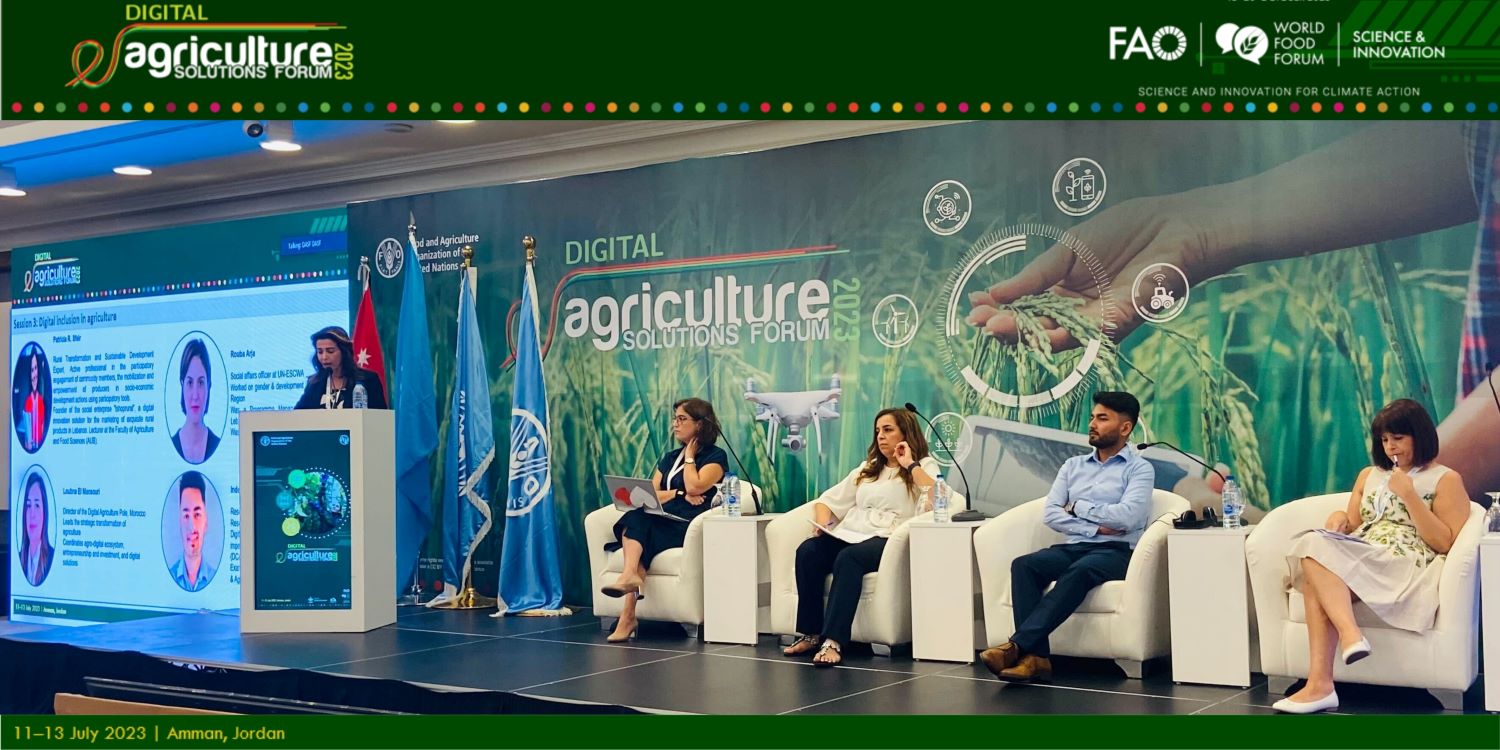
Call to action
The Digital Agri Hub has emerged as a critical player, actively tracking the evolution of the digitalisation of the agriculture ecosystem in low- and middle-income countries across the region. Through collaboration with sectoral stakeholders, the Hub collects, curates, and disseminates information on digital solutions that promise to mitigate challenges in D4Ag and offer viable pathways for agricultural sustainability. As of August 22, 2023, for the NENA Region, the hub’s dashboard features 92 digital solutions. There is a further need to leverage the data and insights while scaling this initiative at the country level among the local actors. Digital Agri Hub offers a data entry tool for digital solutions and service providers. It offers solution providers the opportunity to register their companies and digital solutions for agriculture deployed in low- and middle-income countries or to update existing data on the Hub's database. Consistently updating digital solutions on the Digital Agri Hub dashboard increases their visibility to investors, donors, and other stakeholders in the D4Ag (Digital for Agriculture) sector. Solution providers curate and submit entries for digital solutions on the dashboard, which are verified by the Hub and marked with a green "verified" star.

